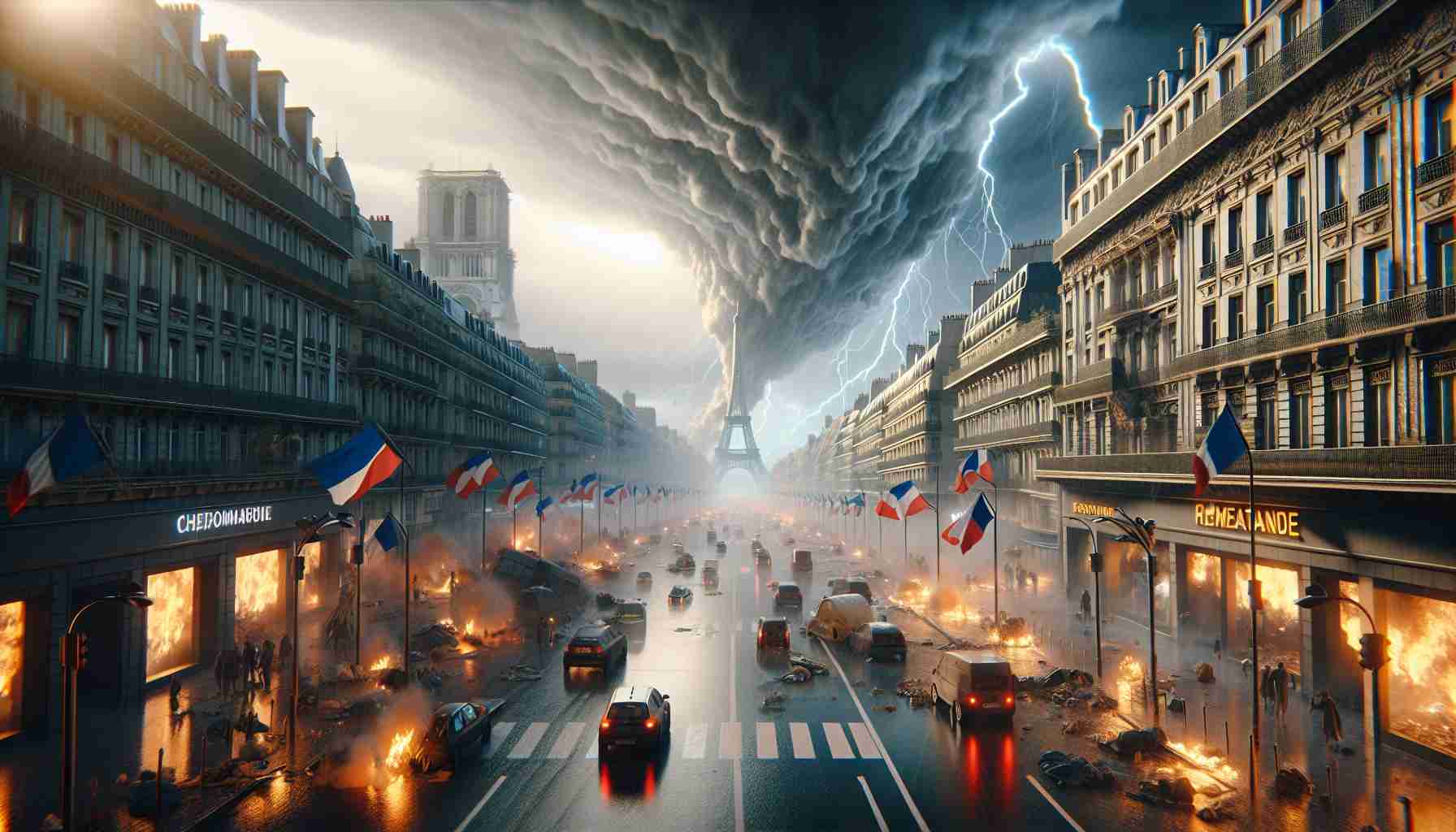In a stark future, France seems paralyzed in its climate efforts. As multinational corporations hold sway, the government’s focus has shifted toward suppressing increasingly radical environmental activism. Amidst rising tensions, a dramatic incident unfolds in Grenoble involving Julia Bombarth, a prominent activist. In a chaotic clash, she inadvertently causes a tragedy by throwing back a grenade that fatally strikes an officer. This act leaves Julia and others in danger of vanishing without a trace, unnoticed by mainstream media.
The chilling aftermath brings all characters to an opulent hotel. Here, they bear a disturbing “B” mark on their heads, symbolizing “Planet B.” This serves as a metaphorical prison where the government manipulates their thoughts, akin to a virtual Guantanamo, isolating them from the outside world.
In her second feature, director Aude-Léa Rapin tackles these themes through a gripping thriller lens. Drawing on clear influences from classic dystopian films, Planet B doesn’t intend to redefine sci-fi but rather adheres to conventional storytelling. With pressing social themes, including surveillance and state oppression, the film critiques how far governments will go under the guise of maintaining order.
Portraying the slippery slope toward authoritarianism, Rapin draws parallels to notable events such as police violence and environmental repression. The narrative also features Nour, an Iraqi immigrant, who challenges the oppressive laws, intertwining the plights of environmental activists with those facing state abuse. Planet B is a striking reflection on our current trajectory, pushing viewers to confront uncomfortable truths.
France’s Climate Activism Crisis: A Dystopian Reflection on Environmental Struggles
The State of Climate Activism in France
France currently finds itself at a critical juncture regarding climate change activism and governmental action. Despite the urgency of climate issues, the government’s response has increasingly leaned toward repression of radical environmental activism rather than fostering meaningful environmental action. This transformation has led to a climate where activists feel cornered, and the true magnitude of the climate crisis is overshadowed by heightened tensions and state control.
Emerging Trends and Innovations in Environmental Activism
In response to governmental suppression, new trends in environmental activism are surfacing across Europe. Grassroots organizations are employing digital platforms for mobilization, using social media to bypass traditional media filters and highlight their messages. Also, there have been innovations in sustainable practices that emphasize collective action, such as community-led renewable energy initiatives and urban gardening projects promoting local food sources.
Security Aspects of Activism
As seen through the narrative of Planet B, security measures are intensifying against activists. Surveillance technologies and data collection methods raise ethical concerns, particularly regarding privacy rights and the potential for abuse by authorities. Activists face legal challenges that threaten their freedom to assemble and protest, underscoring a growing concern about the balance between national security and civil liberties.
Comparing Global Climate Action Efforts
When comparing France’s situation to other nations, the disparity is evident. Countries like Sweden and Denmark have made strides in environmental legislation and public engagement in climate action, whereas France is experiencing setbacks. This contrast highlights the various approaches toward addressing climate change and raises important questions about how state policies shape public perception and participation in environmental movements.
Pros and Cons of Current Activism Strategies
Pros:
– Digital activism opens avenues for wider awareness and education on climate issues.
– Collaborations among activists and NGOs strengthen efforts against government repression.
– Creative protest strategies draw attention to pressing climate crises.
Cons:
– Escalating tensions can lead to a crackdown on peaceful protests and diminish public support for activism.
– Characterization of activists as radicals can alienate potential allies and diminish their cause.
– Risks of misinformation spread through social media challenges the credibility of activists’ claims.
Predictions for Future Climate Activism in France
As the climate crisis intensifies, it’s likely that activism will evolve to adapt to increasing state scrutiny. We may see a rise in decentralized movements that prioritize resilience and sustainability while navigating police restrictions. The intersection of technology and activism could introduce new forms of virtual protests, allowing activists to forge connections without physical assembly.
Use Cases of Dystopian Narratives in Climate Discourse
Narratives like that in Planet B serve as poignant reminders of the potential futures humanity might face if current trends continue. They provide a critical lens through which to examine our response to climate change, pushing us to question the direction in which society is headed. Engaging with these narratives can empower individuals to advocate for systemic change and resist authoritarian responses to climate activism.
Conclusion: Navigating a Complex Future
The struggle for climate justice in France, as explored in Planet B, reflects a broader global challenge. As the fight against climate change evolves, understanding and discussing the implications of state oppression and community resilience will be crucial. Activists, policy-makers, and citizens alike must consider the pathways available to create an equitable and sustainable future while being mindful of the creeping authoritarianism that threatens genuine environmental efforts.
For more insights on environmental activism and sustainability trends, visit Greenpeace.
